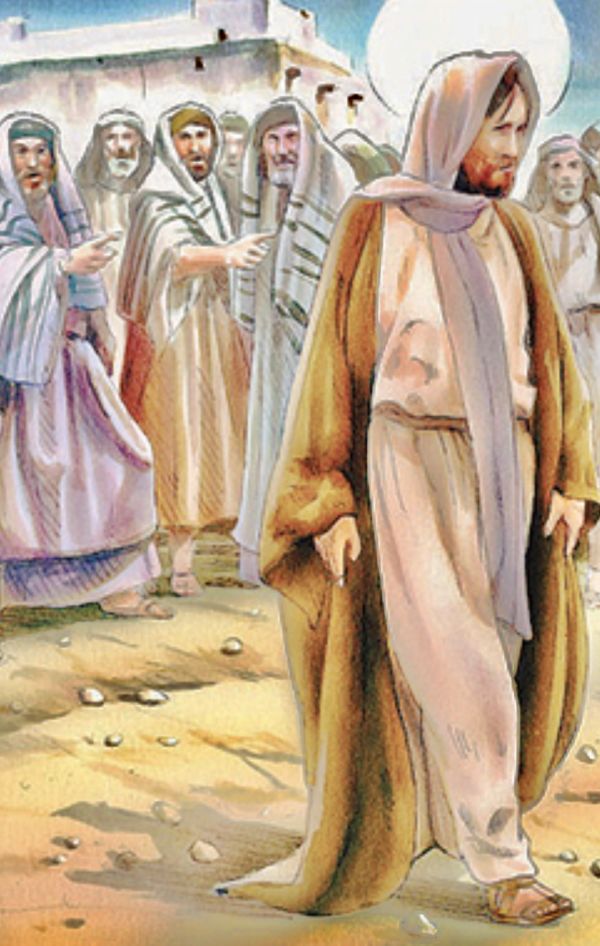(Jn 10:31-42)
The intent of the fourth Gospel is not the particular one to convert Jews, rather to strengthen the Faith in the Person of the Consecrated of the Lord who proclaimed himself «Son».
The Appeal is to the churches of Asia Minor. And in Jn the term «Jews» indicates not the people, but the spiritual guides.
Before them, a "blasphemous" Jesus claims mutual immanence with the Father, and dares to expand (for us) the boundaries of the Mystery that envelops and fills him.
But the divine condition which manifests itself in human fullness is rejected by religious leaders. This in the name of adhering to the Eternal, imagined as distant and ancient.
Psalm 82 reads: «I said: You are gods, you are all sons of the Most High».
The poetic reference of the hymn is to the Israel’s chiefs and judges, but Jesus [who loved to call himself «Son of man»] extends it to those ‘sent by the Father’, to those who welcome his Word - outside the élite.
If divinity can be attributed to God's “agents” not just leaders, more can be attributed to the very Word of God - and sons who proclaim it, all worthy of eminent confidence.
According to Jesus, the Eternal is not revealed by cerebral reasoning and arguments, nor by doctrines, oral and written codes, or disciplines, but by the indestructible quality of the «beautiful» works (vv.32-33) which are «from the Father» (v.32).
The Greek term indicates the sense of fullness and wonder - truth, goodness, charm, amazement - that emanates from the only ‘action’ required in any prominent or minute «work»: love that revives the needy.
And Scripture recognizes in each of us this sacred spark, which gives all events and emotions the step of Vertigo: dizziness that overcomes the surrounding things [or the “how they should be” done].
Of course, to support us we need a Face, a relationship, and a close kinship story to identify what moves us, to scrutinize within what appears or is aroused.
The Unity of natures - He in us and we with the Father - corresponds to us in the Face of Christ.
No pile of stones (v.31) will be able to bury the divine longing and the testimony of those who come «from» Him.
Even if someone killed the “sons”, their «many and splendid works» (v.32) would speak.
Some - interested - try to immobilize the Word that acts in us: the Logos participant of Communion, source of Light and Life.
The detractors still rely on the hostile atmosphere of crude and vain mannered [ancient or fashionable] religiosity...
Well, intimate sons will find a welcome elsewhere, in foreign territory «beyond the Jordan» (v.40).
Everything that happens, even the persecutions and attempts at murder due to misunderstanding or envy [spiritual too] can be looked at from another perspective: of inclusive Faith that reconnect us to the Roots.
They are events, external happenings that activate overall energies: they become cosmic outside and acutely divine in us.
More than dangers and nuisances, they trace a destiny of Exodus - like a river that carries, but which in Christ makes us escape from the hands of a deadly stasis (v. 39), and admirably re-tunes on the forces that guide us to the suburbs - where we must go.
It’s divine Presence, out of the ordinary Action. Infallible Guide of the inner world - which places us back on mission and in search of the most sacred freedom.
[Friday 5th wk. in Lent, April 11, 2025]


